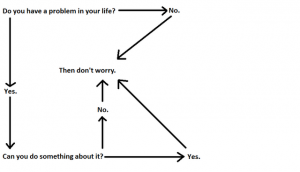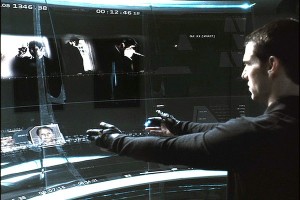Excerpt from article: Leadership: Uncommon Sense, Page 11 • by Bob Anderson • The Leadership Circle (http://www.theleadershipcircle.com/site/pdf/pp-leadership-uncommon-sense.pdf)
PURPOSE
Warren Bennis, in his book On Becoming a Leader, states that all of the leaders he interviewed agreed on the following points:
They all agree that leaders are made, not born, and made more by themselves than by any external means. . . They agree that no leader sets out to be a leader per se, but rather to express him/herself freely and fully. . . Becoming a leader is synonymous with becoming yourself. It is precisely that simple, and it’s also that difficult. . . First and foremost, find out what it is you’re about, and be that.
The ongoing discovery and exploration of our sense of purpose is the central discipline of the outcome-creating stance. It is the starting place for true leadership development.
The power to create what matters in the face of sometimes difficult circumstances comes from within. It comes from passion and conviction. Passion is the energizing force of creative tension and the outcome-creating stance. Passion has its source in knowing what our purpose is, in knowing what we are here to learn, become, and do with our lives. Most people are unfamiliar with a deep and abiding sense of purpose, not because they don’t have one, but because they have not integrated a discipline of spiritual attention into their life.
My favorite description of what the process of discovering purpose is like is found in Rainer Maria Rilke’s Letters to a Young Poet. The young poet of the title wrote to Rilke and enclosed samples of his work for critique. Rather than critique the poems, Rilke responded with some advice about the whole issue of why one would write poetry in the first place— and in so doing, gave a crystal clear description of personal purpose:
You ask whether your verses are good. You ask me. You have asked others before. You send them to magazines. You compare them with other poems, and you are disturbed when certain editors reject your efforts. Now (since you have asked me to advise you) I beg you to give up all that. You are looking outward, and that above all you should not do now. Nobody can counsel and help you, nobody. There is only one single way. Go into yourself. Search for the reason that bids you write; find out whether it is spreading out its roots in the deepest places of your heart, acknowledge to yourself whether you would have to die if it were denied you to write. This above all—ask yourself in the stillest hour of your night: Must I write? Delve into yourself for a deep answer. And if this should be affirmative, if you may meet this earnest question with a strong and simple “I must,” then build your life according to this necessity; your life even into its most indifferent and slightest hour must be a sign of this urge and a testimony to it.
How many of us have inquired that deeply into ourselves? How many know what we “must” do or be? I submit that this kind of deep conviction and passion is uncommon, and as long as it is, genuine leadership will also remain uncommon.
Each of us is a unique spiritual entity. With that, comes our own unique longings and gifts for expressing that uniqueness in the world. We also have a host of experiences and waves of conditioning that make our uniqueness difficult to identify and take seriously. We are acculturated and taught to define our identity and safety upon getting ahead, winning, gaining approval, and meeting others’ expectations. When pursuing our purpose conflicts with these maps of identity, it is easy to lose sight of our own deeper longings. Our soul is then, in effect, held captive by our well-conditioned problem-reacting strategies. It’s very hard to even begin the search for true purpose when we are in the habit of reacting to stay safe. And so, we come back to the original dilemma presented earlier; we cannot pursue both safety and purpose simultaneously. We must make a choice. The soul is not interested in safety. The soul knows what it longs for and it is unwilling to compromise. This is the most important choice we make in life. It also determines the nature and quality of our leadership.
Our life has been speaking to us for a long time about what matters most. It has been leaving clues. It remains for us to have the courage to maintain a discipline of attention to the subtle way our soul calls to us. I frequently work with people on a simple process I call “life listening.” It involves reflecting on times in our lives when we felt most alive and also identifying times when life was as bad as it gets. When people compare these two sets of experiences, and abstract from them the elements that seemed to be present in the former and absent in the latter, they often begin to notice themes and patterns. In these life experiences lie the clues to our purpose, and for most of us clues are all we get. Paying attention to these clues, letting them point the way to our deeper longings, and defining which of these longings are “musts” is the work of this discipline.
We can find out a lot by being open to what our life experiences are trying to tell us. Some of what we find is confirming, some of it we might rather not know. Perhaps we have a deep sense of something unfinished in our lives, despite being outwardly successful. Perhaps we discover that what seems to satisfy us most is not what people want to pay us for. Perhaps we keep finding ourselves thinking about a different kind of work or about something we’ve always wanted to pursue but never have. Perhaps we are pained and plagued by the feeling that what we are doing is not what we were meant to do. I believe that we are continually trying to tell ourselves something about purpose, and that we have only to pay attention to learn something profoundly important.
I believe that the task of life, in a nutshell, is to discover our purpose and to build a life upon it. Sound simple? There are a number of complications: There are plenty of pressures around to distract us from these feelings and insights, even to tell us to “be realistic” and “get back to the real world.” In addition, life gives us plenty of clues, but for most of us only clues. It’s real work to make sense of the clues, and just when we think we’ve got it figured out, the clues keep on coming. Discovering purpose is not an event, it’s a lifelong process. The essential discipline of life and leadership is to continually pursue an understanding of our personal purpose and its meaning for the direction of our lives.
There is another complication. All of this takes courage. Just as creative tension brings with it an opportunity to react to anxiety, the pursuit of purpose can bring us face to face with our greatest fears. It’s not unusual to discover what really matters to us and be terrified. As the poet David Whyte put it in his poem, Out On The Ocean:
And the spark behind fear
recognized as life leaps into flame
always this energy smolders inside
when it remains unlit the body fills with dense smoke.
The spark is often behind fear. The love and passion we would like to discover when we encounter our purpose are accompanied by all kinds of fears related to the change required of our lives if we pursue a new direction, our perceived inadequacy to pursue it, the possibility of failure, or the conflicts we see with what others expect of us or what we have learned to expect of ourselves. Once again, we have the opportunity to move toward the problem-reacting stance in order to reduce these unpleasant or uncomfortable feelings. If we let go of purpose in this situation, we are left in a trap of our own devising—one in which we trade who we are for temporary safety––”and the body fills with dense smoke.” This is spiritual death.
The soul knows where it wants to go, and it will not accept a compromise. Leadership requires the discipline to let go and to be led by our higher purpose. It is essentially a spiritual discipline. I believe that this is the only way to achieve the staying power required to transform ourselves and our organizations—in spite of political risks, self-doubt, fear, and possible failure. Only commitment to a deep longing can sustain us, because it matters enough. Unless the results we are pursuing are connected with something deep within us, creative tension is too easily compromised and we find ourselves back where we started. The leader’s task is not only to cultivate and sustain purpose and creative tension within herself or himself but also to cultivate and sustain these things for the whole organization. There is no safe or risk-free way to do that. There is no formula for success. But there is power in it—the power that lies at the source of genuine leadership.

